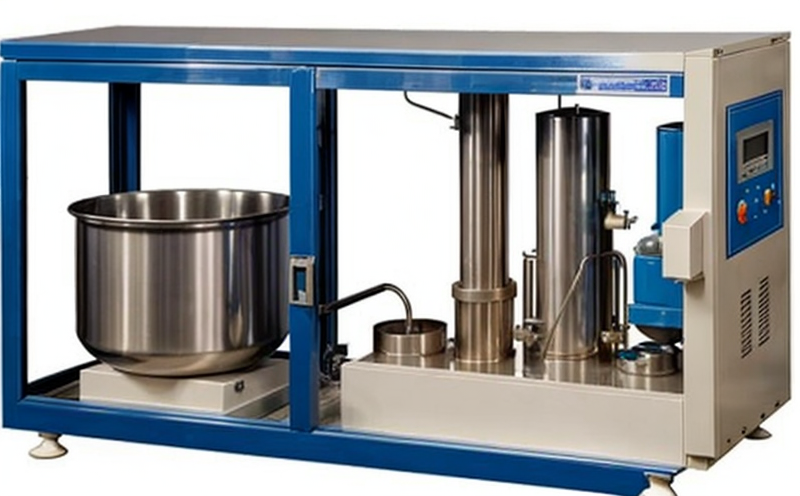ISO 71384 Fumonisin Analysis in Gluten-Free Feed Products
ISO 71384, a standard that specifies the procedure for the determination of fumonisins (B1, B2, and B3) in gluten-free feed products, is a critical tool for ensuring food safety. Fumonisins are mycotoxins produced by certain fungi that can contaminate various agricultural commodities, including grains used in feed production. These toxins pose significant health risks to animals, particularly swine and poultry, leading to diseases like leukoencephalosis. Compliance with ISO 71384 is essential for manufacturers of gluten-free feed products aiming to ensure their products meet the highest safety standards.
The methodology described in ISO 71384 involves several key steps: sample preparation, extraction, cleanup, and analysis by Liquid Chromatography Tandem Mass Spectrometry (LC-MS/MS). This approach ensures accurate quantification of fumonisins within the gluten-free feed matrix. The process begins with the collection of representative samples from various production batches or lots to ensure a comprehensive analysis.
Once collected, samples undergo thorough preparation. This includes drying, milling, and homogenization to achieve a fine powder that is suitable for extraction processes. Extraction typically uses aqueous solutions containing organic solvents like acetonitrile to extract fumonisins from the feed matrix into solution form. After extraction, the sample is cleaned up using solid-phase extraction cartridges or other methods to remove interfering substances, ensuring cleaner samples for analysis.
The final step in this process involves LC-MS/MS analysis. This highly sensitive and precise analytical technique allows for accurate quantification of fumonisins at extremely low concentrations. The instrument separates the compounds based on their chemical properties and then detects them using mass spectrometry, which identifies each compound by its molecular weight.
Compliance with ISO 71384 is crucial not only to ensure product safety but also for maintaining consumer confidence in gluten-free feed products. Non-compliance can result in recalls, legal actions, and loss of market share. By adhering to this standard, manufacturers can demonstrate their commitment to quality and regulatory compliance.
The analysis provided by ISO 71384 is essential for the following reasons:
- To ensure that gluten-free feed products do not contain fumonisins above acceptable levels.
- To protect animal health from potential mycotoxin exposure.
- To maintain market access to regions with strict regulatory requirements regarding food safety and quality.
- To comply with international trade agreements and standards.
Accurate analysis of fumonisins in gluten-free feed products is vital for maintaining the integrity of these products. By adhering to ISO 71384, manufacturers can ensure their products meet the highest safety standards, thereby protecting both animal health and consumer trust.
Eurolab Advantages
Expertise in Analytical Chemistry: Eurolab boasts a team of highly qualified chemists with extensive experience in analytical chemistry. Our experts are well-versed in the latest techniques for analyzing complex matrices such as gluten-free feed products.
State-of-the-Art Facilities: Our laboratory is equipped with advanced instrumentation, including Liquid Chromatography Tandem Mass Spectrometry (LC-MS/MS) systems. This ensures that we can perform accurate and reliable analyses of fumonisins in gluten-free feed products.
Comprehensive Reporting: Eurolab provides detailed reports that not only state the results but also include information on sample preparation, instrumental parameters, and method validation details. These comprehensive reports help our clients understand the full scope of the analysis performed.
Rapid Turnaround Times: We understand the importance of timely results in the food testing industry. Eurolab ensures that samples are analyzed promptly to meet deadlines without compromising on accuracy or precision.
Dedicated Client Support: Our dedicated client support team is always available to assist with any questions or concerns regarding our services, ensuring a seamless experience for our clients.
International Acceptance and Recognition
The ISO 71384 standard has gained widespread acceptance in the food safety industry. Its rigorous procedures ensure consistency and reliability across laboratories worldwide. This standard is recognized by regulatory bodies, international organizations, and individual countries that prioritize food safety and quality.
ISO standards are developed through a consensus-based process involving experts from various sectors. The ISO 71384 procedure for fumonisin analysis in gluten-free feed products has been validated to ensure accuracy and precision. Laboratories accredited by organizations such as the International Organization for Standardization (ISO), American Society for Testing and Materials (ASTM), European Committee for Standardization (CEN), and International Electrotechnical Commission (IEC) are required to follow these standards.
The acceptance of ISO 71384 extends beyond national borders. Regulatory authorities in countries like the United States, Europe, Canada, Australia, and New Zealand have incorporated this standard into their food safety regulations. Laboratories that adhere to this standard can ensure their results are recognized internationally, facilitating easier trade between countries with differing regulatory requirements.
Compliance with ISO 71384 is not just a choice but a necessity for manufacturers of gluten-free feed products. By adhering to these stringent standards, they can demonstrate their commitment to quality and safety, thereby gaining an edge in the competitive global market.
Competitive Advantage and Market Impact
Adhering to the stringent requirements of ISO 71384 provides gluten-free feed manufacturers with a competitive edge in several ways:
- Innovation Leadership: By staying ahead of regulatory trends and implementing advanced analytical methods, manufacturers can differentiate themselves from competitors.
- Better Decision-Making: Accurate data on fumonisins allows for informed decision-making regarding production processes and raw material sourcing.
- Enhanced Reputation: Compliance with ISO standards enhances the reputation of gluten-free feed products, leading to increased consumer trust and loyalty.
- Increased Market Share: By meeting stringent safety standards, manufacturers can expand their market share in regions where food safety is a priority.
The impact of adhering to ISO 71384 extends beyond individual companies. It contributes to the overall improvement of gluten-free feed products' quality and safety, benefiting both animal health and public confidence. This standard ensures that products are safe for consumption by animals, thus promoting a healthier food chain.





